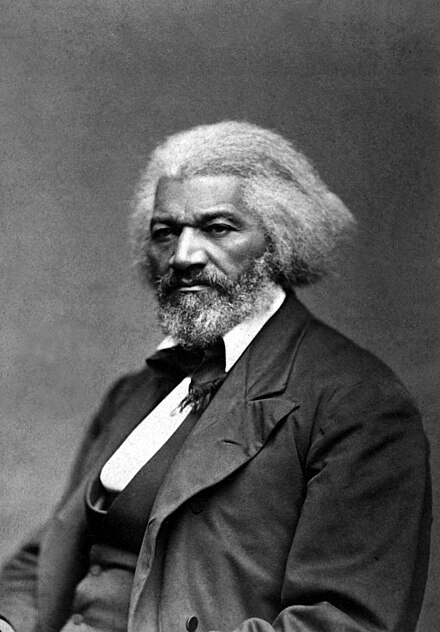
Frederick Douglass
(Image by Wikipedia (commons.wikimedia.org), Author: George Kendall Warren (1834–1884) Alternative names) Details Source DMCA
In the thirteenth century, England expels Jews from country. Over thirteen hundred Jews are forcefully deported with "no precipitating crisis, no emergency, not even any public explanation" to precede this course of action, writes Humanities Professor Stephen Greenblatt. England is the first nation in medieval Christendom to expel Jews.
Jews had been accused of any number of things, including the murder of Jesus, himself, likely of Jewish heritage, Greenblatt declares, but, over all, Jews were hated. Along with "Ethiopians, Turks, witches, hunchbacks, and others", Jews, once deported, became "an invisible people who functioned as symbolic tokens of all that was heartless, vicious rapacious, and unnatural". Before and after the expulsion, the purging of Jews from England, the hatred of a people of difference remained. By the 16 th century, "no Jews had claim on reality" since the Jews had been "made nothing", that is, Vernichtung.
And, yet, Greenblatt asks, rhetorically, where is Christ without the Hebrew Bible? Nonetheless, the Jew turned symbol represents what is not human in Christendom. This creation of what isn't human distracts from what is human and we are to never notice and always forget that the use of deliberate and cruel violence makes a fantasy within a reality for the benefit of entitled to maintain the power of life and death over others.
Shakespeare, a man of his time, Greenblatt explains, initially speaks and writes of Jews in ways expected of someone who never met a Jew. For Shakespeare, Jews were "ancient history". Years later, after Marlowe writes The Jew of Malta and after his death, Shakespeare, Greenblatt writes, pens "lines that seem exceptionally alert to the human misery and political dangers of forced expulsions". In Sir Thomas More, the Bard writes,
"-Imagine that you see the wretched strangers,
-Their babies at their backs, with their poor luggage
-Plodding to th' ports and coasts for transportation."
In this world too, Africans were hated. The "color black", historian Howard Zinn explains, was thought to be "distasteful". Even before 1600, the Oxford English Dictionary defined the color as something "deeply stained with dirt; soiled, dirty, foul... atrocious, horribly wicked... liability to punishment". The importing of Africans had already begun.
Shakespeare will begin to think on the resistance of a character named Caliban.
The idea of expulsion and colonization is indeed "ancient history".
**
"I am to speak to you tonight of the civil war by which this vast country, this continent is convulsed." The war is on, Frederick Douglass declares, and of all the humans on the planet, the African Americans are ready to fight in it.
And so, David Blight, in Frederick Douglass, Prophet of Freedom , calls on President Lincoln to allows "black loyalty" to show itself to America, to the world, for the cause of freedom. In return, Douglass hears from the Lincoln administration an offering of "colonization schemes". And there is America, Blight writes, revealing, once again, its history and character consisting, "essentially" of "the embodiment of contradictions". If honest today, Americans shouldn't find it baffling to recognize how we live in a nation, as Zinn noted, that was determined to return every runaway slave to the plantation while lackadaisical when it came to "enforcing the law ending the slave trade".
Lincoln considers the colonization of African Americans. Lincoln may have come to hate slavery, Blight argues, but he, nonetheless, was content with "working within what he viewed as the restraints of his legal power as commander in chief". In the White House, thinking about the urgency of freeing people held in brutal bondage didn't occupy the mind of the nation's leader. Commander in chief. For Lincoln, when it came to slavery, there were only three ideas to consider. The first idea was that emancipation should be "gradual", the second, it should "compensate" the slaveholders, and the third, it should "result in the colonization of as many blacks as possible outside the United States".
In other words, slaveholders, "hated" though they might have been and slavery "hated" though it might have been, nonetheless, served this nation by catapulting it right to the top of Western civilization. For Douglass, Lincoln's ideas were unacceptable.
(Note: You can view every article as one long page if you sign up as an Advocate Member, or higher).




